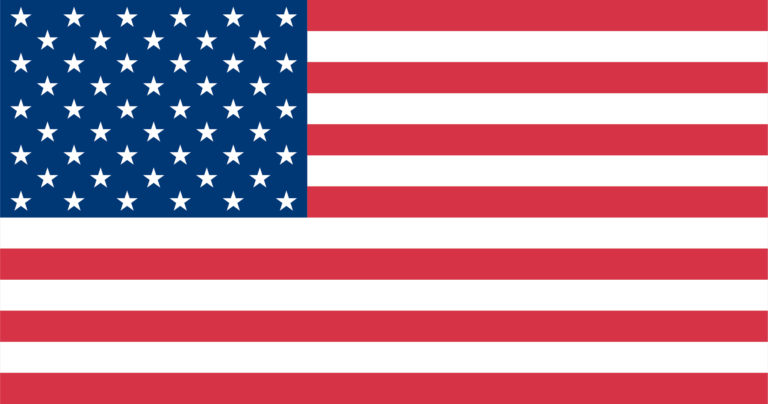- brussels[at]educationusa.org

Administered by the Fulbright Commission in the Netherlands, the Campus Scholarship Program provides a unique opportunity for talented students to spend one year at U.S. universities. Most Campus Scholarship Program (CSP) students do a “gap year” – enrolling at an American university for one year as a non-degree student – before returning to the Netherlands to pursue their studies. After more than sixty years, this program will be available for Belgian students starting in the 2021-22 academic year.
So … why spend a gap year at an American university? In just one academic year, the Campus Scholarship Program allows students to experience two of the best aspects of the American education system: the liberal arts model and the campus community.
First, the unique American Liberal Arts model allows students to pick classes in a wide variety of subjects: ranging from foreign languages, such as Japanese, Chinese or Arabic, management, computer science, sport, dance and music to debate classes, philosophy and film. This wide range of classes allows you to figure out what you want to study.
One of the other great aspects of going to university in America is campus life. During your year abroad you’ll be living in a dorm, where you share a room with one or more roommates. Your meals are provided for you in the dining hall, where, due to your meal plan, you can pick your meals from a wide variety of foods. How does a salad bar, Papa John’s pasta, burgers or sushi sound? The dining halls will always have an option that suits you. Besides that, the campus also has a lot of resources. There is a gym, a pool and other sports facilities. The university library has an expensive collection and is open the majority of the time, sometimes even 24 hours. If you play an instrument, there is a good change that you’ll find many different practice rooms at your disposal. There are also a large number of clubs that you can become involved in, such as hiking, Quidditch, photography or diving. The best part about living on campus is the fact that there is always something to do. You’ll never be bored!
We currently invite applications from students intending to study in the U.S. during the 2022-2023 academic year. If you are a student in Belgium, you can apply to the Campus Scholarship Program on one of the following deadlines:
After being selected for a year in the United States, the experienced staff members at the Fulbright Commission in the Netherlands will help you and your parent(s) prepare properly for your year abroad. The staff will help you find the right university for you and assist with the process: from applying to universities and getting scholarships to pre departure meetings to help you prepare for your year in the US. Once you’ve been selected for the program, your placement at an American university is guaranteed; you will receive a significant discount on tuition and at least one option within your budget.
The exact location of your university remains a surprise for now. Will you be surrounded by beautiful nature in Oregon? Are you going skiing in Michigan? Or are you going to be down south where you don’t even need a winter coat? The team at the Fulbright Commission in the Netherlands determines which university or universities would be a good fit for you, based on your test results, budget, hobbies and interests.
The application for a gap year at an American university is a complicated process. If you were going to the United States for your entire bachelor’s degree, you would be able to apply to practically any of the thousands of American universities, as long as you meet the entry requirements. Because you’re only going for a year, not all universities will accept your application. Since 1949 the Fulbright Commission in the Netherlands has partnered with several universities who are open to receiving gap year students and are willing to provide them with a scholarship. At the moment, the Campus Scholarship Program has strong partnerships with approximately 60 universities. If you have any questions about the available locations, feel free to contact the Fulbright Commission in the Netherlands.
CSP has several conditions and criteria that you have to meet in order to be accepted to the program. After you’ve completed your application, the Fulbright Commission in the Netherlands will invite you to a virtual interview in order to get to know you better. Their selection commission looks at your motivation and expectations, your hobbies and interests, your grades and the feedback from your references. As a CSP participant you are required to get good grades, actively participate in social activities on campus, and talk about life in your home country.
Applicants should meet the following conditions in order to be accepted to the Campus Scholarship Program and placed in an American college or university:
If you don’t meet these conditions, please contact the Fulbright Commission in the Netherlands at csp@fulbright.nl to discuss alternative options.
Because costs vary per institution and per region, it is impossible to tell you exactly how much a gap year in the United States could cost. Keep reading to understand the reason for the wide range in fees and to see a sample budget.
The big differences in the cost of university, both between the USA and in Belgium and within the USA, are caused by the range of tuition fees. In the USA, there is no centralized organization that can define the limit of the tuition fees. Universities and colleges are free to decide this themselves. In general, the tuition at public (state) universities is lower than that of private institutions, because public universities are partially subsidized by the state in which they are located. On the other hand, private institutions sometimes offer better scholarships that can defray the cost of attendance.
The other major factor that influences the cost of your gap year is the region in which the university is located. The cost of living varies per state and per region: life in the Northeast or West coast is more expensive than in the middle of the USA. On top of that, life on a rural campus is cheaper than in a big city.
Most American universities offer scholarships to lower the cost of attendance. The scholarship possibilities vary per university and per applicant. Most scholarships are merit-based, which means that they are based on your grades and test results, while others are based on how well you fit with the university, the sport you play or your particular talent. Several universities also offer scholarships to international students in order to support the diversity on campus. For American universities, diversity is important because it allows students to get to know different cultures … which makes you an interesting candidate as an international student!
Although most universities save their scholarship money for students who will attend the university for their full four years, the Campus Scholarship Program works with universities that do offer scholarships for one-year students. Our partner universities offer good scholarships to the participants of the Campus Scholarship Program. In the past year, the average scholarship at state schools was $10,000 and $30,000 at private schools. The highest scholarship awarded in 2019-2020 was $44,000!
In the following section, you will find an overview of the average costs.
PRE-DEPARTURE COSTS
COSTS IN THE USA
I have a double nationality. Is this a problem? A double nationality is not a problem. However, if you also have an American nationality, it could be that your options are more limited. Students that also have an American nationality often are seen as ‘domestic students’ (even if you’ve never lived in the USA). This means that you might not be eligible for all international student scholarships. If you have questions, reach out to the Fulbright Commission in the Netherlands.
Why do I need to take standardized tests? The ACT and the SAT test your general knowledge and are taken by American students in order to be admitted to university. The American school system doesn’t have centralized exams at the end of secondary school. Therefore, a student’s education level is tested when applying for university. Unlike the SAT and ACT, the TOEFL measures a student’s English language proficiency. The university uses this test to be sure that new students speak the language well enough to participate fully in university level academics.
Where can I have my standardized test score reports sent? For all tests, you can select score recipients after your registration. Often this option arises after you’ve paid. If the student can’t find it, they can complete the reservation. Score recipients can be added at any time before the test date. Have the student log in on their account and find ‘send scores’ and follow the instructions. If they do this before the test date, sending the scores is free but if it’s done after the test date, this costs money. The score recipient codes of the Fulbright Commission in the Netherlands can be found at https://fulbright.nl/deadlines-en-aanmelden.
Can I do a gap year at Harvard/MIT/Stanford? Sadly, you can’t. If you go to America for a gap year, not all university will accept your application. A large amount of universities save their spaces and scholarship money for degree seeking students (who spend all four years on campus). This makes sense. The aforementioned universities have an acceptance rate of less than 5% and will not accept your application for a gap year. The full overview of participating universities can be found at https://fulbright.nl/csp-universiteiten/.
Can I be enrolled at a university that isn’t on the list? The Campus Scholarship Program works with universities that we knows will accept our students, offer them a scholarship, and provide good housing. The chance is slim that we can successfully place you at a university outside of our program. Ask the program manager about the possibilities.
How many universities can I pick from? After being selected for this program, participants will receive a list of suggested universities (usually around 10). Participants are always registered at four universities and thus will select four schools from a list of approximately 10 institutions.

Boulevard de l’Empereur 4, Keizerslaan, 1000 Brussels
(by appointment only)
Sign up for our digital newsletter here!